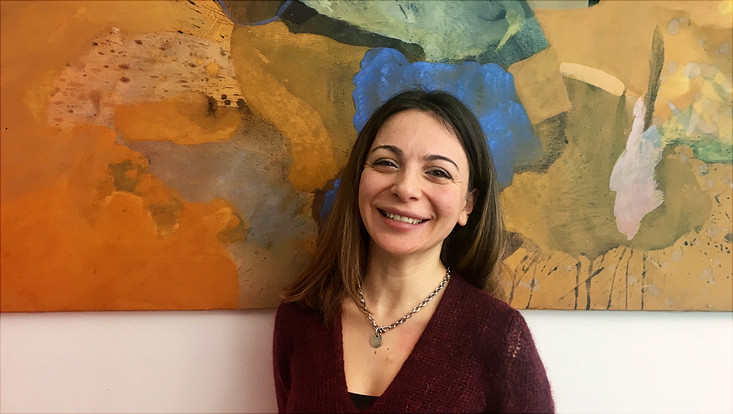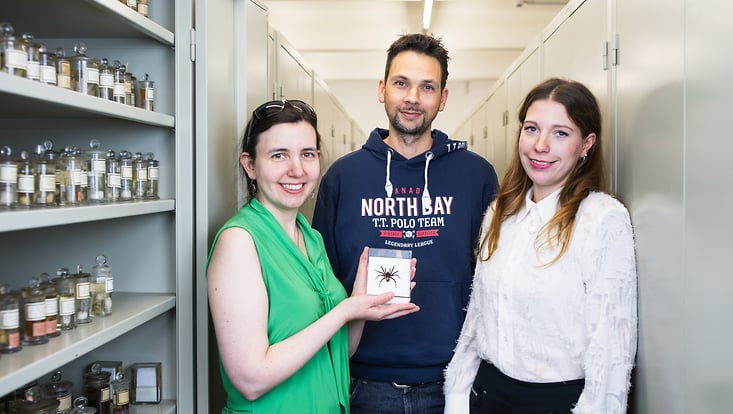Improving Quality of Care in Europe (IQCE) European Training NetworkDoctoral candidates want to improve healthcare
23 February 2018, by Anna Priebe

Photo: UHH/HCHE/Phillips
As part of the EU-funded Improving Quality of Care in Europe (IQCE) European Training Network, a total of 15 doctoral candidates from all over the world are developing concepts to improve the European healthcare system. Six European partner universities are offering the program, including Universität Hamburg (Hamburg Health Center for Health Economics). Angela Meggiolaro is one of the 4 students being supervised here.
What is the topic of your dissertation?
My topic focuses on the development of a standardized econometric method to evaluate quality and costs of healthcare in different countries by using statistical data and methods. I will focus on one emergency treatment in case of cardiovascular diseases and stroke treatment. I will try to measure hospital performance in different countries.
In other words: Do the German hospitals perform better than Italian, English, or other European hospitals? To do that I have to develop measurable criteria für quality. On the other hand are the costs. We will also compare the public expenditures and we will try to forecast a country’s outcome at different budget constraint, if data allow.
Why did you decide to do your PhD within the ETN IQCE?
Throughout my career, especially during my clinical practice as a medical doctor, I have experienced the impact of diagnoses and treatments at the patient level. However, previous and current health research still provides poor evidence to health policymakers in many circumstances. The rationale of the IQCE program is to support research with the potential to influence health policy to improve the quality of healthcare in Europe—within a context of limited resources and competing demands. I was personally attracted by the international profile of the program, and the opportunity for collaboration with highly qualified PhD candidates. The prospect of learning from internationally recognized specialists thrilled and challenged me at the same time. Moreover, the IQCE training takes place at some of the best European universities in the health economics field, and the training is cutting-edge.
How does PhD training at different universities work in practice?
Each fellow has a home institution where we work on our dissertations. In my case that is Universität Hamburg. The PhD fellows are offered a range of courses held at all universities associated with the ETN. Different ETN students select specific courses expected to be helpful for their PhD project, but so far we have mostly attended all the classes together. The candidates travel together to the partner university holding the course of interest, enjoying good opportunities to network. The courses are intensive, lasting on average 3–4 days full-time and the students receive a final assessment, usually a take-home exam, to be done in the weeks following the class. In order to collect the credits it's mandatory to pass the assessment.
Healthcare is a topic that is quite controversial, especially in Germany. What challenges do you face when trying to approach it scientifically?
For research purposes the biggest problems are not due to a lack of administrative data but of clinical data, for example on the urgent treatments and the preventive healthcare management strategy after discharge from the hospital. Although the German health system is certainly a good example of accountability and transparency, in light of clinical data limitations, it turns out to be difficult to fully compare clinical practices in terms of cost-effectiveness. So we try to cooperate with people in the clinical and economic fields as closely as we can. Furthermore, healthcare provision within and between countries in Europe is very heterogeneous. The level of inequality still presents significant challenges.
What part of the program are you most looking forward to?
Regarding my research project: to implement the methodology and compare different countries' performance. In terms of the ETN program, I am focusing on multilevel modelling and applied econometrics. My research is currently trying to disentangle several methodological issues to produce robust and reliable results.


